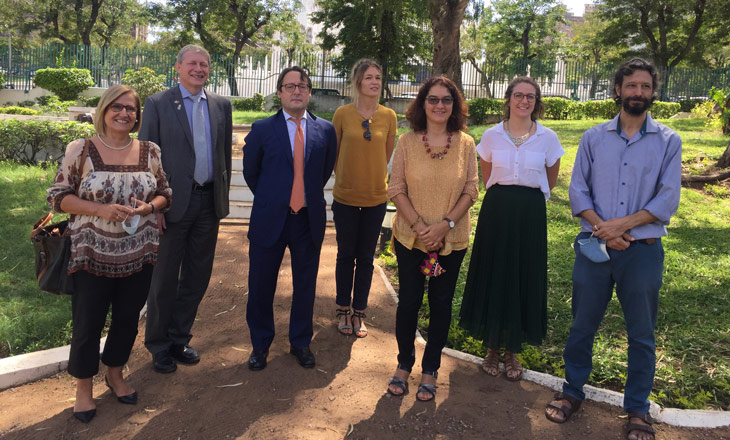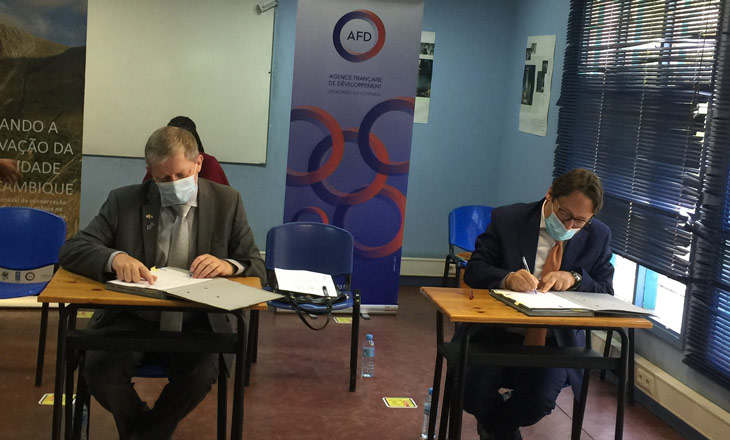To this end, on the morning of Wednesday 3 March, a financing agreement was signed between the French Development Agency (AFD) and the Foundation for the Conservation of Biodiversity (BIOFUND) for the project designated ECO-DRR.
Published at 03/03/2021
AFD and BIOFUND launch resilience project for the mangrove ecosystems in the Zambezi Delta and a Fund to mitigate the effects of climate disasters on Conservation Areas
This is a project with the aim of strengthening ecosystem, community and financial resilience, in the face of climate change in Mozambique. With the duration of five years, the project counts on financing of 6.29 million euros, of which 6 million euros is provided by AFD and 290,000 euros by the French Red Cross.
Due to its geography and topography, Mozambique is exposed to extreme climatic events, which lead to heavy human and economic losses. The country is in 10th position among the counties of the world most vulnerable to the risk of disasters. According to Mozambique’s National Disaster Management Institute (INGC), the country has already suffered more than 80 catastrophic events since the 1950s.
To confront the effects of these climatic disasters in the country, the ECO-DRR project will be divided into three components:
- The first component seeks to strengthen the capacity of local stakeholders in reducing the risk of disasters in the Zambezi Delta watershed at provincial, district, municipal and community level. This component will be implemented by the French Red Cross (CVF) and by the Mozambican Red Cross (CVM);
- The second component is centred on the protection, restoration and sustainable management of the mangrove ecosystems in the Zambezi Delta. It will be implemented by WWF through the creation of nature-based solutions, including the sustainable management of 15,000 ha of mangroves, the ecological restoration of 390 ha of mangroves and the establishment of 2 community conservation areas;
- The third component will create financial resilience of the system of Conservation Areas, in the event of climate change, through a contribution to the BIOFUND endowment. This includes the creation of a “Specific Fund to mitigate the effects of climate change”, and the development and implementation of its procedures over the long term, and at national level, to ensure that the Conservation Areas have access to funds to mitigate destruction and damage caused by natural disasters.
As a result of the project, it is expected that, after five years, an adequate density of mangroves has been established and maintained in the restoration areas (about 390 ha of mangroves), the livelihoods of the households who live in these ecosystems have been improved, and 15,000 ha de mangroves have been placed under sustainable management, through the development of mangrove management plans. The resilience of the system of Conservation Areas in the country will be strengthened with the creation of an emergency fund under the BIOFUND endowment, to be used in the event of natural disasters.
The project also envisages raising the awareness of about 70% of the members of the target communities about the measures to be implemented in the event of flooding, and the creation and validation of disaster response community action plans.



